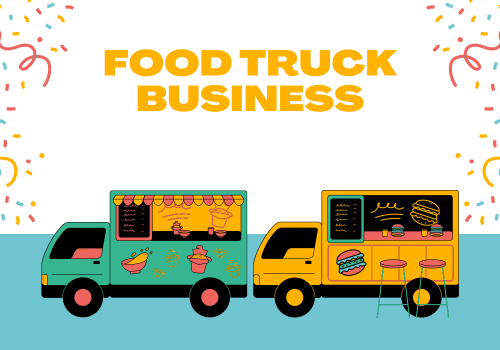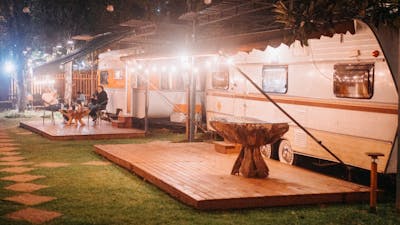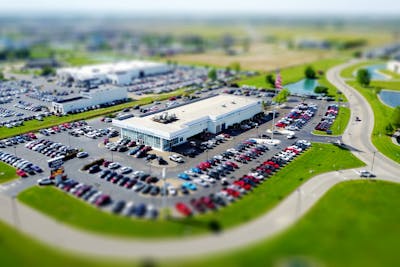The Ultimate Guide to Buying a Food Truck: Everything You Need to Know


Table of Contents
Introduction
Starting a food truck business is an exciting venture that combines the love of food with the freedom of mobility. It’s an industry that has seen significant growth over the past few years, making it an attractive option for aspiring entrepreneurs. However, buying a food truck is a significant investment, and there are several factors you need to consider before taking the plunge. This guide will walk you through everything you need to know to make an informed decision when buying a food truck.
1. Understand the Food Truck Industry
Before buying a food truck, it’s crucial to understand the industry. The food truck business has grown exponentially, offering diverse cuisine to a wide range of customers. However, it’s also highly competitive. Research the market in your area, identify your target audience, and understand what types of food trucks are most successful. This knowledge will guide your decisions on the type of truck to buy, the menu to offer, and the locations to target.
2. Define Your Concept and Menu
Your food truck’s concept and menu are the heart of your business. Are you planning to serve gourmet sandwiches, ethnic cuisine, or sweet treats? Your concept should align with your passion, skills, and market demand. Once you have a clear concept, design a menu that is not only delicious but also practical for a mobile kitchen. When buying a food truck, consider how the truck’s layout will support your menu and cooking process. Remember, food trucks have limited space, so your menu should focus on a few signature items that can be prepared efficiently.
3. Set a Budget for Buying a Food Truck
Buying a food truck is a significant financial investment, and it’s essential to set a realistic budget. The cost of buying a food truck can vary widely depending on factors such as size, equipment, and whether it’s new or used. A new food truck can cost anywhere from $50,000 to $200,000, while a used one may range from $30,000 to $100,000. In addition to the truck itself, consider other expenses such as permits, insurance, maintenance, and marketing.
4. New vs. Used Food Trucks
One of the first decisions you’ll need to make when buying a food truck is whether to buy a new or used vehicle. Each option has its pros and cons.
- New Food Trucks: Buying new means you get a custom-built truck tailored to your exact specifications. It comes with the latest equipment, a warranty, and no wear and tear. However, new trucks are more expensive and have a longer lead time.
- Used Food Trucks: Used trucks are more affordable and are available immediately. However, they may require more maintenance, and the layout may not be perfect for your needs. It’s crucial to thoroughly inspect a used truck and understand its history before purchasing.
5. Consider the Size and Layout
The size and layout of your food truck are crucial to your business’s success. The truck should be large enough to accommodate your cooking equipment and staff but small enough to navigate city streets and fit into parking spots. When buying a food truck, ensure the layout allows for efficient workflow, enabling you to prepare and serve food quickly during busy periods. Work with a designer or consultant who has experience in food truck design to optimize your space.
6. Equipment Needs
Your food truck will need to be equipped with all the necessary kitchen equipment to prepare your menu. Common equipment includes grills, fryers, refrigerators, freezers, and sinks. Depending on your menu, you may also need speciality equipment. Make a list of all the equipment you’ll need when buying a food truck and ensure that the truck has the space and power to accommodate it. If buying a used truck, inspect the condition of the equipment carefully.
7. Licensing and Permits for Buying a Food Truck
Operating a food truck requires various licenses and permits, which can vary by location. Common requirements include a business license, food handler’s permit, health department permit, and parking permit. Research the specific requirements in your area and ensure you budget for these costs when buying a food truck. Failing to comply with local regulations can result in fines or even the closure of your business.
8. Insurance
Insurance is a critical part of running a food truck business. You’ll need commercial auto insurance to cover the truck, general liability insurance to protect against accidents or injuries, and property insurance for your equipment. Additionally, consider business interruption insurance to cover lost income if your truck is out of service due to an accident or mechanical failure. When buying a food truck, shop around and compare quotes from different providers to get the best coverage at a reasonable price.
9. Financing Options
If you don’t have the cash to buy a food truck outright, there are several financing options available. These include traditional bank loans, equipment financing, and Small Business Administration (SBA) loans. Some food truck manufacturers and dealers also offer financing plans. Be sure to compare interest rates, terms, and conditions to find the best option when buying a food truck.
10. Maintenance and Repairs
Regular maintenance is essential to keep your food truck running smoothly. This includes routine checks on the engine, brakes, and other mechanical components, as well as regular cleaning and maintenance of kitchen equipment. Establish a relationship with a trusted mechanic who has experience with food trucks. Additionally, set aside a budget for unexpected repairs, as a breakdown could temporarily put you out of business. When buying a food truck, consider the potential maintenance costs and choose a truck that is reliable and easy to service.
11. Marketing and Branding
Your food truck needs a strong brand to stand out in a crowded market. Invest in a professional logo and eye-catching truck wrap that reflects your concept and appeals to your target audience. Utilize social media to build a following, post your locations, and engage with customers. Consider offering promotions, loyalty programs, and participating in local events to increase visibility and attract new customers. A strong brand is as important as the truck itself when buying a food truck.
12. Choosing the Right Location
Location is critical to the success of your food truck. High foot traffic areas, such as business districts, parks, and event venues, are ideal spots. However, competition can be fierce in these areas, so it’s important to scout locations, understand local regulations, and even test different spots to find the best fit. Also, consider catering at private events and festivals, which can be lucrative sources of income. When buying a food truck, think about the types of locations where you’ll operate and whether the truck’s design and equipment are suited to those environments.
13. Understand the Challenges
While the food truck business offers many rewards, it also comes with challenges. These include long hours, unpredictable weather, mechanical issues, and navigating regulations. It’s important to be prepared for these challenges and have contingency plans in place. Stay adaptable and resilient, and always keep the big picture in mind. Being well-prepared when buying a food truck can help you manage these challenges effectively.
Conclusion
Buying a food truck is a significant investment, but with careful planning and execution, it can be a profitable and fulfilling business. By understanding the industry, defining your concept, and making informed decisions, you’ll be well on your way to launching a successful food truck. Remember, the key to success in the food truck business is passion, persistence, and a commitment to quality. When buying a food truck, keep these factors in mind, and you’ll be set for success. Good luck on your journey to becoming a food truck owner!
FAQs
1. How much does it cost to buy a food truck?
The cost of buying a food truck can vary widely depending on factors such as size, equipment, and whether it’s new or used. A new food truck typically ranges from $50,000 to $200,000, while a used truck may cost between $30,000 and $100,000.
2. Should I buy a new or used food truck?
Both options have their pros and cons. A new food truck offers customization, the latest equipment, and a warranty, but it’s more expensive. A used truck is more affordable and available immediately but may require more maintenance. The choice depends on your budget and business needs.
3. What licenses and permits do I need to operate a food truck?
The required licenses and permits can vary by location but typically include a business license, food handler’s permit, health department permit, and parking permit. It’s essential to research and comply with local regulations to avoid fines and ensure smooth operation.
4. What kind of insurance do I need for a food truck?
You’ll need commercial auto insurance for the truck, general liability insurance to cover accidents or injuries, and property insurance for your equipment. Additionally, business interruption insurance can protect your income if your truck is temporarily out of service.
- You might be intrested to read this:
- How to Start a Business: Guide for Aspiring Entrepreneurs



Post Comment